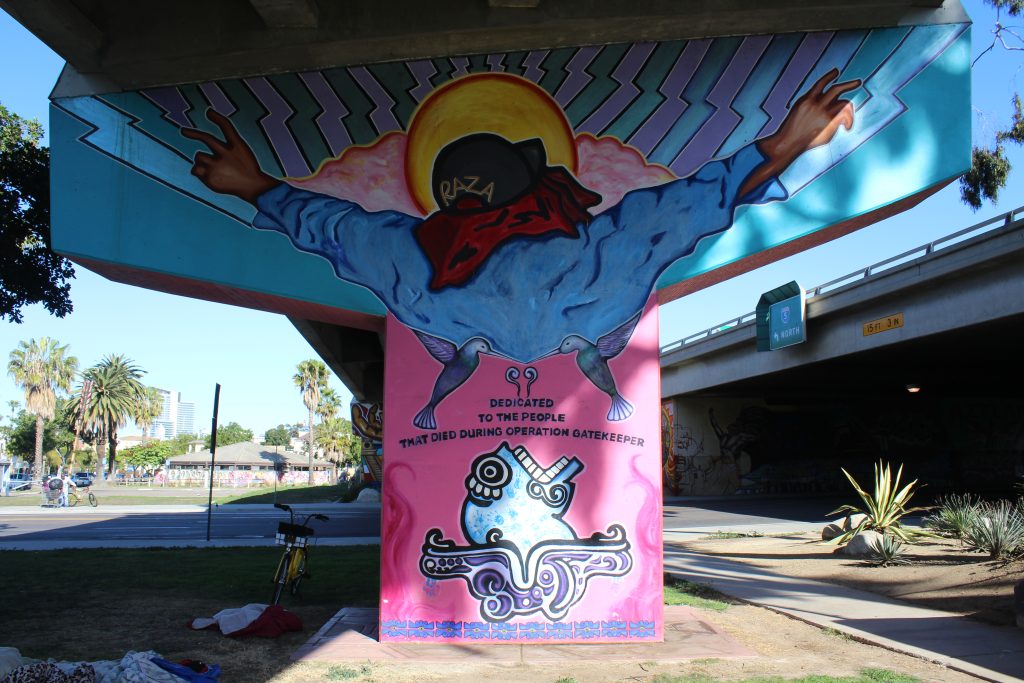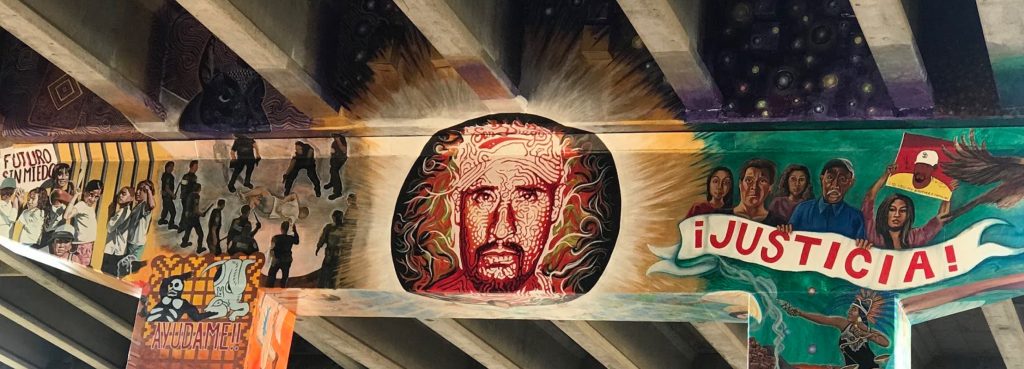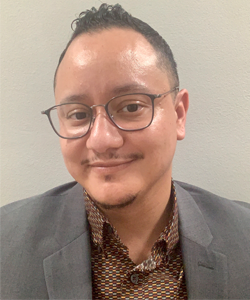Damian Vergara Bracamontes (Gender and Women’s Studies) is a 2022–2023 HRI Campus Faculty Fellow. Vergara Bracamontes’ forthcoming book, The Administration of Illegality and Mexican Migrant Life, traces the formation and consolidation of illegality in a new phase of social exclusion and control in San Diego, California in the 1970s.
Learn more about HRI’s Campus Fellowship Program, which supports a cohort of faculty and graduate students through a year of dedicated research and writing in a collaborative, interdisciplinary environment.
What is unique about your research on this topic?
My book, tentatively titled, The Administration of Illegality and Mexican Migrant Life, is both a history of contemporary immigration policy and a theorization of the undocumented condition. Through a queer and trans of color analytic, this book tells the story of how undocumented status, at first an irrelevant legal category, became a social-political-economic condition shaping Mexicana/o/x migrant everyday life.
The book is set in post 1960s San Diego, California, as the formative moment and space that identified the undocumented as a problem and sought to develop various practices to identify, track, and control undocumented migrants in the region. For example, I look at the incorporation of checking for legal status by a range of institutions such as hospitals, the Department of Motor Vehicles, schools, and libraries. I interpret these practices as modalities of administrative violence, and through them, I demonstrate the ways illegality is not stable or coherent—but is instead, I argue, constituted through an iterative and spatial process of exclusion and violence. This argument captures two unique contributions of this book. One, it moves migration scholarship beyond a traditional account of the plight of the undocumented to a project that questions the stability of the category altogether. Secondly, it broadens our notions of immigration policing as limited to the border space, to an understanding that migrants can and do experience the border anywhere, and at any time.

What drives your interest in this research?
The origin story of my research, like that of many others, is personal. My family and I spent more than twenty years as undocumented immigrants trying to navigate the evolution of incongruent local policies and practices.
When I began my undergraduate research in Ethnic Studies, I recall being frustrated by the overwhelming approach by migration scholars to focus on policy analysis at the expense of migrant voices. There was so much about undocumented life that was still unknown then, and from my perspective this was a methodological issue. I resolved then to create research that honored migrant voices not for their plight, but for their ability to critically reflect on their own condition. This would ultimately become my method, the migrant lexicon of immigration enforcement.
“Now, I like to think of myself as part of a generation of undocumented and formerly undocumented scholars and creatives dedicated to complicating simple and homogenous narratives about undocumented life. My hope is that my research will denaturalize exclusion and create a roadmap to undo the marginalization of undocumented immigrants.”
— Damian Vergara Bracamontes

How has the fellowship seminar impacted the way you approach your research?
Brainstorming my work with HRI fellows was such an affirming and generative gift. They truly understood the stakes of the project and gave me great feedback regarding what context was necessary and what I could cut to allow more space to discuss the things that matter. I felt re-energized about my work and with a sense of direction.
